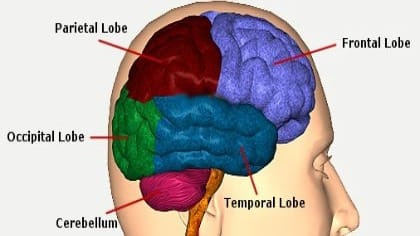Early Onset Dementia: A Devastating Form of Alzheimer's
Frontotemporal dementia, also known as early onset dementia, can affect anyone at any age. Learn about the symptoms, causes, and ways to cope with this type of dementia that affects the frontal lobe, responsible for personality and individuality.

Early onset dementia… also known as frontotemporal dementia.
It is a dementia that can strike anyone at any age. In particular it affects those under 65 years of age. It is second only to Alzheimer’s disease as a cause of dementia in the young.
The frontal lobe is also known as the cerebral cortex. It is responsible for much of the higher order functions that define us as individuals.
While other parts of the brain are responsible for:
Motor function
Balance
Vision
Hearing
And all the other stuff that keep our bodies going.
The frontal lobe does the delicate work of what is basically our personality. Our individuality.
It handles:
Emotion
Judgments related to sympathy
The ability to feel sorrow and sympathy
Humor
It controls movement
Initiative
Impulsivity
Sexual behavior
Judgment
Memory
And it enables us to recognize deception.
Another important function is ‘sequencing’… the ability to perform multi-step tasks like cooking a meal.
Damage to frontal lobe causes a person’s personality to change. The person might be unrecognizable from the person he or she was. Knowing the symptoms can help lead to early diagnosis. As well as, being able to help everyone cope with the side effects.
SYMPTOMS
- Change in personality – For some people this may not be immediately noticeable. For example, an introverted people become the life and soul of the party. Some people attribute this to them becoming more relaxed, as they get older.
But, a key warning sign is the inability to behave in a given social situation. Many sufferers of frontal lobe dementia become overly aggressive. They lose their inhibitions without any outside influences... such as alcohol.
They can also lose their ability to empathize with others. Which makes it hard to care for them, as they will turn away most offers of help.
- Language difficulties. Language production and comprehension areas of the brain are in the temporal lobe. The frontal lobe has the final say over what is said and how it is said. Patients tend not to display typical dementia speech loss. Such as slurring or forgetting words. But friends and family may notice an inability to articulate. And see a decline in the number of conversations initiated by the sufferer.
- Eating habits. Research has discovered a link... between frontal lobe dementia and an increase in wanting sweets. While no official explanation is available for this relationship... it is thought that damage to the frontal lobe ... causes patients to regress to a more childlike state of mind. And younger children often use sweet food as a comforter.
It is currently thought that fronto-temporal dementia is a hereditary condition. At least half of the worldwide cases.. running in the same family. With the same pattern of symptoms. The remaining cases arise from genetic mutations within the individual’s lifetime. But further research is being done on frontal lobe conditions such as Pick’s disease. To confirm these hypotheses.
Coping with Frontal Lobe Dementia
Dealing with dementia is incredibly difficult for all concerned. The patient may not be able to realize the changes that are happening to them. And may become frustrated that they are losing control over their words and actions. People close to the patient also suffer as the patient’s personality changes.
The fact that it strikes younger adults makes it harder to deal with. Typically frontal lobe dementia takes under a decade to reach late stage dementia. This is where a patient is entirely dependent on outside help for the simplest of tasks. This includes walking, eating and dressing. Many people anticipate this happening to their parents in their old age. Not to people in their 40s or 50s.
Constant monitoring of symptoms and medication may help to slow down symptoms.
Sometimes fronto-temporal patients will refuse medications. This is due to their personality changes. In these situations, injections are an option versus no medication at all. The patient also receives guidance and therapy. As well as the caregivers…on how to manage the changes in their social skills.
The biggest part of care for patients with frontal lobe dementia is for their caretakers. Doctors will point people in the direction of local support groups. It is emotionally draining. And damaging to have to take care of someone so close... Watching their personality and independence fall apart. Often a more helpful option is respite care.
Respite is when either the patient goes into a long-term care environment for a while... or when someone come to the home and takes over care from the family caretaker for a period of time. Naturally, a break in care comes as a great relief to most caretakers. This leaves them feeling energized and more able to cope.





